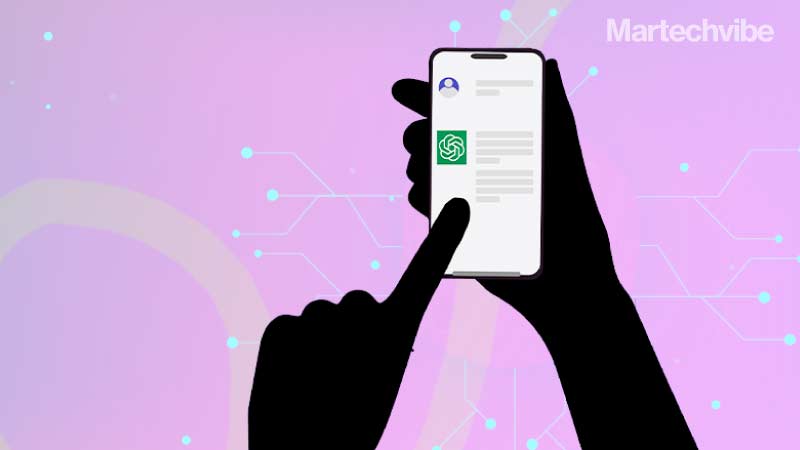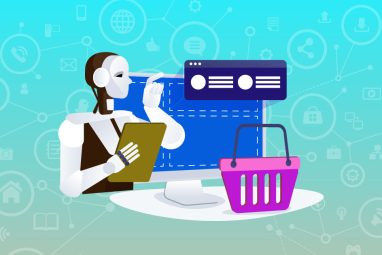Players Need To be Wary of Power Concentration in ChatGPT
The enterprise conversational AI market is at least $1bn dollar worth of on-chat, with 100s of players sharing this space today. With an aggressive pricing expectation from ChatGPT, most of them, if not all, are looking at a bleak and redundant future.
Topics

The Power Concentration in the software world that ChatGPT would create is not something the ecosystem should be excited about but be wary of.
Around 300 billion words, 500+ GB of data, guesstimate of 1000s of labellers – that’s what makes ChatGPT better & faster than the rest. OpenAI founder Altman was kind to himself when he mentioned the costs being eye-watering; there would be mammoth expenditure to run an operation of that scale. So it would, of course, not be free forever. There would be no rewards for guessing that Microsoft will look at licensing this black box like all the other systems. Thus the power concentration with such deep-pocketed large entities who are the only players who can run operations at this scale is not something that excites me. We as an ecosystem should be more excited about an open, decentralised future and not another black box, however technologically advanced it is. What could have made this very exciting is if the RLHF (Reinforced learning with Human Feedback) of Chat GPT is more open and if there is an open source road map for the algorithms?
The more controversial debate on the legality of curating & monetising creators’ content that is out there on the web for free will continue to hover, very similar to the ongoing debates with search engines. This is specifically about the unconfirmed remark of Microsoft planning to monetise this technology on a per-message basis.
Impact on the Conversational AI market: The market repercussions would be huge for chatbot AI startups and Small enterprises, depending on how Microsoft and Open AI position this technology. The enterprise conversational AI market is at least $1bn dollar worth of on-chat, with 100s of players sharing this space today. With an aggressive pricing expectation from ChatGPT, most of them, if not all, are looking at a bleak and redundant future.
However, there would be a small offset with new companies being spun with GPT-3 APIs as their backend technology stack. Like any popular technology company, there would be a strong ecosystem of partners who will evolve around ChatGPT and GPT-3 as the APIs start getting released & utilised.
What can enterprises expect?
Chat GPT and GPT-3 are two different solutions. They may converge shortly, but all use cases mostly leverage GPT-3 API from Open AI. ChatGPT is still offered as a browser-based conversational querying system which relies on data that is trained only until a year back. So as a conversational system, unless the training is real-time, direct use of this technology is not yet envisaged for enterprises. However, it may not be too far for the next version release, along with APIs for developers/enterprises to consume. If the solution is offered as a service on the Azure cloud as expected, this may still apply only to a limited set of industry segments where privacy is not a concern. We may still need to observe how the technology adapts to accommodate the regulatory norms of industries such as Banking and Financial Services.
Today, technology leaders may be thrilled about generative AI; once applied to their business use case, they would demand more control and curation of the AI-generated responses or content. Hence, a hybrid model of the existing system with a more custom Reinforced learning with human feedback option to enable this for enterprises.
Impact on the creators’ ecosystem: Another trending discussion is what skillsets ChatGPT would have the potential to replace. Generative AI is also very generic in its skillset. It requires humans to train the system with specific skills, such as emotional intelligence. So, specialised skill sets would continue to flourish; they would also have a new stream of opportunities would come up as trainers for AI systems. Subpar resources with moderate skill sets in their domain will be replaced, either by AI or better people. So, upskilling oneself continues to remain a critical requirement to grow. Experts still debate the intellectual property aspect of this technology. Can one publish content generated by ChatGPT and not be liable for a plagiarism debate? Only time will tell.
If you liked reading this, you might like our other stories
Is Omnichannel Causing More Challenges Than Solutions?
What Will Happen If You Turn This Off?









































































































